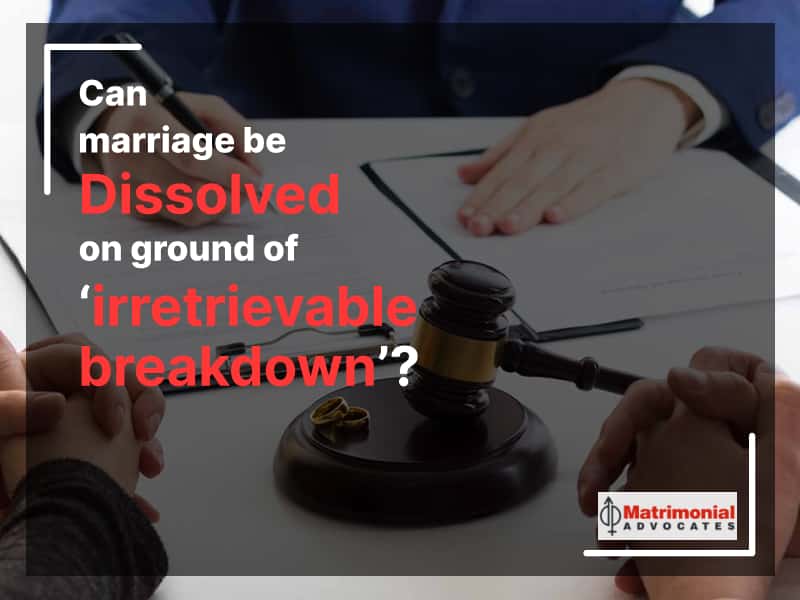
Case Study
Shilpa Sailesh v. Varun Sreenivasan [TP(C) No. 1118/2014] and other connected matters Citation: 2023 LiveLaw (SC) 375
The Supreme Court of India, delivered the judgment on a batch of petitions pertaining to the exercise of its powers under Article 142 of the Constitution of India to dissolve ‘irretrievable marriages’ between consenting couples without referring the parties to Family Courts for protracted judicial proceedings for obtaining a decree of separation.
Issue before the Supreme Court
Original issue before the Court: Whether the mandatory waiting period for divorce by mutual consent as prescribed under Section 13B of the Hindu Marriage Act could be waived?
Issue considered during the hearing: During the course of hearing, the Constitution Bench decided to consider the issue: Whether marriages could be dissolved on the ground of irretrievable breakdown?
A Constitution Bench comprising Justices Sanjay Kishan Kaul, Sanjiv Khanna, A.S. Oka, Vikram Nath, and J.K. Maheshwari pronounced the verdict.
Factors to be considered
While waiving off the time period of six months, the court should consider the following factors:
- The time period that the parties had cohabited after marriage;
- Last cohabitation of the parties;
- Nature of allegations against each other and their family members;
- Orders passed in the legal proceedings from time to time,
- Overall impact on the personal relationship;
- Number of attempts made to settle the disputes by intervention of the court/ mediation;
- Last attempt made for co-habitation.
Article 142 of the Constitution
Article 142 of the Constitution of India provides discretionary power to the Apex Court of India, as the Article states that the Supreme Court in the exercise of its jurisdiction may pass such decree or make such order that is necessary for doing complete justice in any matter pending before the Court.
Legal points answered by the Court
Scope and ambit of power and jurisdiction of the Supreme Court under Article 142(1) of the Constitution of India.
The Apex Court can depart from the procedural and the substantive laws, as long as the decision is exercised based on considerations of fundamental general and specific public policy.
When to exercise the discretionary power?
The Supreme Court being the Apex Court of the India is a problem solver by balancing out equities between the conflicting claims and the power must be exercised with great caution.
Whether the Supreme Court can grant divorce while exercising power under Article 142(1) of the Constitution when there is complete and irretrievable breakdown of marriage in spite of the other spouses opposing the prayer?
Yes, in exercise of power under Article 142(1) of the Constitution, the Court has the discretion to dissolve the marriage on the ground of its irretrievable breakdown.
This discretionary power is to be exercised to do ‘complete justice’ to the parties. Such discretionary powers can be exercised wherein the Court is satisfied that the facts established show that the marriage has completely failed and there is no possibility that the parties will cohabit together. The Court is satisfied that continuation of the formal legal relationship is unjustified. The Court, as a court of equity, is required to also balance the circumstances and the background in which the party opposing the dissolution is placed.
Six months period can be dispensed with
The Constitution Bench led by Justice Sanjay Kishan Kaul held that the mandatory six-month waiting period for divorce by mutual consent under the Hindu Marriage Act, 1955, can be dispensed with. The bench stated that “We have…. held that it is possible for this court to dissolve the marriage on the ground of irretrievable breakdown of marriage.”
Irretrievable breakdown of marriage not a ground for dissolution of marriage but it is cruelty
The Court stated that “A marriage can be dissolved by a decree of divorce, inter alia, on the ground when the other party has, after the solemnisation of the marriage, treated the petitioner with cruelty. In our considered opinion, a marital relationship, which has only become more bitter and acrimonious over the years, does nothing but inflicts cruelty on both the sides. To keep the façade of this broken marriage alive would be doing injustice to both the parties.”
Conclusion
The Constitution bench of the Supreme Court declared that the Court has the authority to dissolve a marriage based on irretrievable breakdown without waiting for the required waiting period as per the marital laws. The Court can exercise its power to dissolve the marriage due to irretrievable breakdown, and the mandatory six-month waiting period for mutual consent divorce can be waived off, subject to certain conditions.
The Court clarified that grant of divorce on the ground of irretrievable breakdown of marriage is not a matter of right, but a discretion which is to be exercised with great care and caution.






Very insightful.